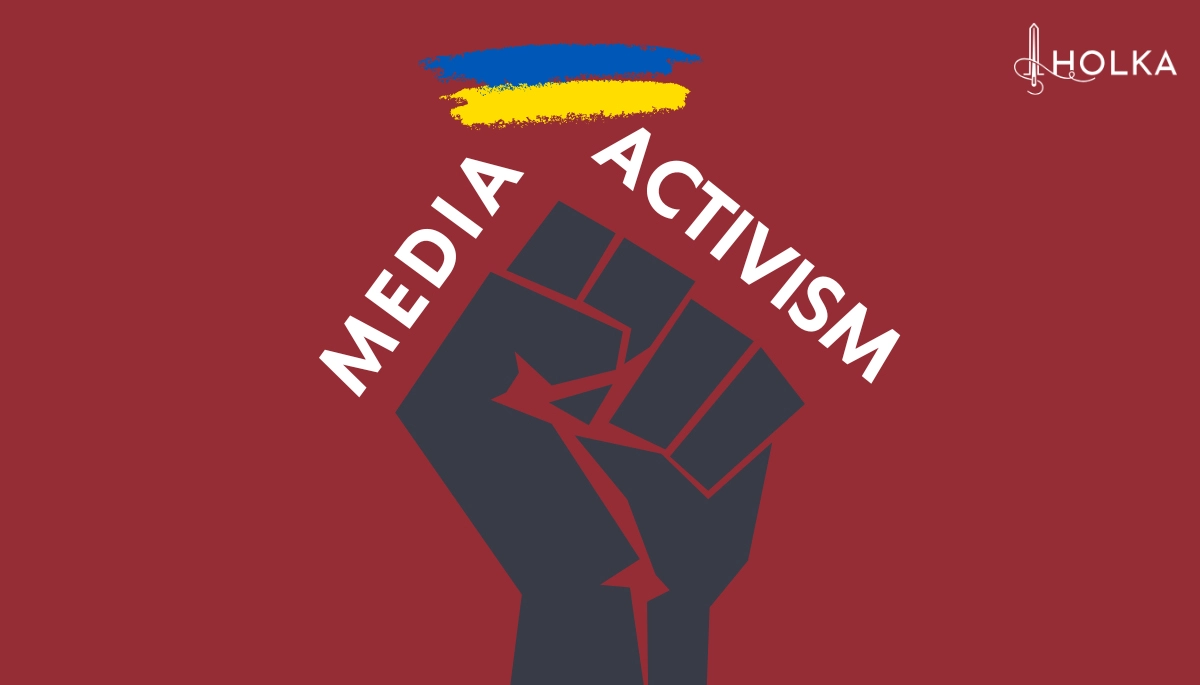Українською читайте тут.
This week, several thousand journalists and representatives of the public sector gathered in Bonn for the Global Media Forum 2024. I was a speaker on one of the panel discussions, and there are some things I believe should be discussed not only at the forum but also with a wider audience.
The organizers of the Global Media Forum 2024, in my opinion, answered this question quite clearly. They invited not only media workers but also representatives of the public sector. Note, not doctors, not economists, or representatives of other sectors. Journalists and activists were there, and among the participants were those who combine journalism with activism.
The discussion panel “Why Journalism Cannot Be Activism” was initiated by the Konrad Adenauer Foundation.
A very important question arose during the discussion: can a journalist take sides, or should they simply be a mirror reflecting reality by presenting different viewpoints? Journalists from countries with authoritarianism and dictatorship emphasized at the beginning of the discussion that journalists there stand up for freedom of speech – and that is already a position. There are historical moments when journalists play a crucial role for their people. Here we can recall Ukrainian Journalist Viacheslav Chornovil.
In my opinion, where democratic values and an existential struggle of the people are concerned, lack of stance is definitely not about journalism.
In Ukraine, attacked by Russia, there is an existential war. If, for example, we talk about banning the activities of the Federal Security Service of Russia in cassocks (so-called Moscow priests), no sensible journalist will chase FSB agents to get their position on this issue. Of course, there are media and "journalists" who deliberately bring speakers with pro-Kremlin narratives to their audiences.
At the forum, I presented research by the civic initiative "Holka," which uncovered a Kremlin network of Telegram channels, including the channel of lawyer Rostyslav Kravets, Maksym Buzhanskyi, Oleksandr Dubinskyi, Andriy Portnov, and several anonymous Telegram channels.
This work is a great symbiosis of the public sector and data journalists from TEXTY.org.ua who worked with the data.
Following this research, members of parliament registered a bill aimed at regulating social media. This indicates that the political system responded appropriately to both journalistic work and public sector activities.
This is not about censorship, as some colleagues in the discussion might perceive. It's about these new media not being held accountable for fakes, which our colleagues from "Detector Media" have repeatedly identified. Social networks are a huge market for black advertising. In fact, advertising in social networks should be brought out of the shadows, and the state should receive taxes from all this. This is entirely fair because we have the opportunity to have an additional source of income during the war when we ask for resources from partners.
During the last panel discussion about Ukraine, where, unfortunately, there was no speaker from Ukraine, it was mentioned that media in Ukraine, now involved in fundraising for the front, might find it difficult to return to those "pre-war standards" of journalism.
Here we all need to remember a very simple thing: in democratic countries, journalists support democratic values. Freedom of religion is one thing, but banning the activities of Russian special services under the guise of cassocks during a full-scale war is another. And this is not a second side from which to take comments and give access to our audiences.
Similarly, supporting the army in a country undergoing an existential war not started by us should not raise the question of why journalists not only donate as citizens but also help the front thanks to the trust in their names. Moreover, some journalists took up arms and went to defend the country and the people. Did they cease to be journalists when they took up arms?
National security is as much a value as freedom of speech. It needs protection. Being on the other side means being on the other side of democracy.
Special attention at the media forum was given to citizen engagement. In fact, citizen journalism began to thrive thanks to social networks and the blogosphere. But the role of traditional media remains quite significant, as they have the trust of a large audience, including politicians who can address important societal issues. Therefore, it is important for activists that socially important topics and their struggles are covered in such media.
This is why the civic initiative “Holka” helps active citizens write texts and involves MPs, government officials, and local government representatives in their comments. This allows activists to become more visible and independently influence changes in their community or at the national level. In this way, they actively participate in the life of the country and monitor the actions of the authorities.
For example, in Kyiv, 17-year-olds Maria Kosovtsova and Mykhailo Sobolev stood up for the Literary Square, which is threatened by development. Besides, Kosovtsova defends the area near Pyrohovo and the Museum of Outstanding Figures. High school graduate Mykhailo and student Maria already have their own column on "Livyi Bereh."
After such advocacy publications, we make video reports and post them on our YouTube channel and with our media partners – "Espreso," "Poglyad," and other media with larger audiences and capabilities than a single civic organization.
If activists want to join the project, they just need to fill out a Google form. The European Endowment for Democracy supports this project and organized a discussion at the Global Media Forum on how important it is for the media to engage citizens in active participation in the political life of the community and country.
After winning the war, we will face the question of whom to vote for, how to control those we elect, and to achieve quality societal change, we need to actively develop citizen journalism.
And we must always remember that there are professional functions we perform in various positions or jobs. However, what unites us is not the function but the role. We are all citizens. And we must be conscious and have an active civic stance.
This is why journalists, activists, and those who combine journalism with activism attended the Global Media Forum 2024.



